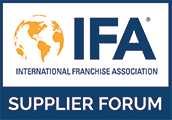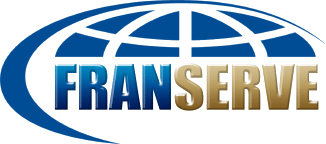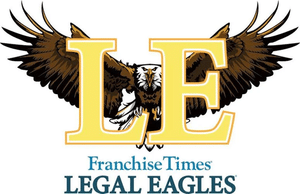For many established franchise systems, international expansion represents a significant growth opportunity. We have a specialized team of franchise attorneys that support franchise systems with their international expansions, both into and out of the United States.
Here’s why a franchise may want to grow beyond domestic borders:
- Growth Beyond Borders and Additional Revenues: Expanding internationally opens doors to new markets, allowing you to tap into entirely new customer bases. With successful domestic operations, entering foreign markets can drive additional revenue streams, diversify your income, and shield your business from fluctuations in local demand.
- You Have Saturated Your Local Market: If your franchise system has reached market saturation within your home country, international expansion may be the next logical step. After successfully capturing a large share of your domestic market, expanding overseas offers the chance to replicate your success in regions where demand for your concept is still untapped. The model that you choose for your international expansion will usually depend on where you are in your development in your domestic market.
- Opportunity to Adapt, Innovate, and Improve Your Franchise System: Going international challenges your franchise to adapt and innovate. Different markets come with unique consumer behaviors, preferences, and regulations, which can push your franchise system to improve, whether it’s through new product offerings, operational processes, or marketing strategies. Expansion often forces brands to streamline operations and make their franchise system more flexible and competitive.
Are You Ready to Expand Internationally?
Before diving into international waters, it’s crucial to evaluate whether your franchise is truly prepared for global expansion. Consider the following:
- Have You Tapped Out Your Local Market?: Is your franchise system established and well-represented across your home market? Expanding internationally makes sense if your domestic footprint is strong and you’ve maximized growth in your current territories. If you have not yet saturated your home market and still wish to expand internationally, you may want to consider working with a master franchisee who can handle all of the heavy lifting overseas.
- Do You Have the Resources and Bandwidth to Invest in International Expansion?: Expanding internationally requires both financial and operational commitment. International franchising demands substantial investment in time, capital, and expertise. To franchise directly in the U.S. alone can cost $50-100K in up-front costs—and that’s excluding the additional human resources required to manage expansion efforts.
- Do You Have the Right Team in Place to Support Your Expansion?: Successful international franchising depends on a strong team with the experience and skills needed to navigate the complexities of foreign markets. Some key roles to fill include:
- Head Office:A leadership team with a global vision and an understanding of international operations. An expansion to a different part of the world may require you to have a team based in the new market.
- Franchise Consulting: Experts to guide you through operational best practices, strategies, and potential pitfalls associated with an international expansion.
- Legal & Tax Experts: Advisors to ensure you comply with foreign franchise laws, regulations, and tax policies.
- Franchise Sales Organizations (FSOs) / Franchise Brokers: Partners to help identify and obtain qualified franchisees in foreign markets.
- Real Estate Professionals: Experts to help you find the best locations for your franchises abroad, considering local market trends and consumer behavior.
What Are the Avenues for Expanding Internationally?
Once you’ve determined that international expansion is the right move for your franchise, there are several models to consider:
- Direct Franchising & Joint Ventures: Under this model, you can franchise directly to individual franchisees in foreign markets or form joint ventures with local partners. This allows for greater control over brand standards and operational processes but requires more investment and oversight from your head office.
- Area Representative: In this model, you sell development rights to an area representative who is responsible for recruiting and supporting franchisees in a specific region. It allows you to retain more oversight than master franchising but with less direct involvement in day-to-day operations.
- Master Franchising: This model involves granting to a franchisee (also known as a “sub-franchisor”) the rights to operate as the local “franchisor” and sell franchise units within an entire country or region. This model enables rapid expansion, as the master franchisee is responsible for localizing the brand, finding franchisees, and overseeing operations in their territory. The master franchisee handles all of the heavy lifting associated with the international expansion, but you retain the ability to ensure the integrity of your brand is maintained.
By carefully choosing the right international expansion strategy, you can maximize your chances of success and ensure sustainable growth in global markets.
Which expansion model will work best for your franchise? Schedule a free consultation to discuss it with our team.







